Reviews of The Fever: How Malaria Has Ruled Humankind for 500,000 Years (Sarah Crichton Books/Farrar, Straus & Giroux, 2010)
“Human history marches to the beat of what? A big brass band? A choir singing hymns? The lub-dub of the human heart? Sonia Shah’s tour-de-force history of malaria will convince you that the real soundtrack to our collective fate is none of these: it is the syncopated whine-slap, whine-slap of man and mosquito duking it out over the eons.”
—New York Times, July 27, 2010
Read more
“The Fever is an often rollicking read, spanning from modern-day Panama and Malawi to medieval Italy….Shah has put together an engrossing cast….Most fascinating is Plasmodium itself. Like fiction’s best supervillains, it is a complex, brilliant and mysterious foe that has resisted all attempts to tame it. While recent campaigns have had some success, Shah warns that to underestimate the parasite’s resourcefulness is to invite future epidemics. We have 500 millennia of suffering as proof.”
—TIME magazine, July 12, 2010
“The lessons of history should give us pause….All these issues, and many more, are brilliant exposed in Ms. Shah’s book.”
–Wall Street Journal, November 19, 2010
“As Sonia Shah shrewdly points out in The Fever: How Malaria Has Ruled Humankind for 500,000 Years, these campaigns are predicated on the optimistic notion that fighting malaria is easy. ‘The individual literally can step
forward, make a contribution, buy a bed net and directly save a life,’ an official from the American charity Malaria No More told a journalist in 2006. I wish people like him would read Shah’s book.”
—Harper’s magazine, March 2011
“Raw, vivid…Shah presents a fascinating history….The Fever is a mine of information, drawing on diverse accounts from medical experts and field workers. This is an important book on the historical lessons we must not forget and the mistakes we are still making today in the battle against what remains a formidable killer.”
–New Scientist, July 14, 2010
Read more
“The Fever is a call to arms, though it’s written with admirable clear-headedness and not a trace of alarmism. It’s a compelling account of a disease that remains out of sight — and thus out of mind — for most Americans, even as it slowly tightens its grip on other parts of the world. Despite Shah’s engaging prose and obvious enthusiasm, the subject matter means it’s far from an easy read — but it might well be an essential one.
–NPR.org “Books We Like,” July 12, 2010
Read more
“This insightful book explores the human struggle with malaria not just from a scientific angle, which is cogently detailed without being overwhelming, but also from sociological and anthropological perspectives, which turn out to be the real strengths of this work . . . Shah is to be commended for focusing much of this well-written book on exactly these aspects of humankind’s interaction with malaria and how they have contributed to the lack of success in vanquishing it. Focusing on the science of medicine while ignoring its other components is akin to trying to ride a bicycle with only one wheel, and this is true not just with malaria, but also with AIDS, tuberculosis, and other diseases that afflict large numbers of people.”
—The Boston Globe, July 7, 2010
Read more
“Engrossing and terrifying….Shah brings a balance of poetry and hard science to her reporting.”
—Barnes & Noble Reviews, August 24, 2010
“Shah weaves a compelling tone throughout her book, using her descriptive-writing spell to bring the reader through failed malarial eradication programs even as smallpox and polio vaccinations succeeded.”
–Elizabeth Howell, “Forget Vampires. These bloood-suckers are deadly,” The Globe and Mail (Canada)
A “compelling expose…Shah tells a heart-breaking story.”
—Canberra Times (Australia), July 31, 2010
“Science writer Sonia Shah tells all….A good, bleak read.”
—The Weekend Australian, September 18, 2010
“Good science writing is worth its weight in diamonds and Shah’s book is no exception.”
—The Sunday Age (Australia), August 1, 2010
“A fascinating book that examines a complicated landscape of anthropology, medicine, history, biology and politics.”
—Townsville Bulletin (Australia), August 7, 2010
“Fascinating, eye-opening and thoughtful. Part science, part history and part cultural study, it reminds us of the dangers in the hubristic belief that technology can solve all our problems.”
—Adelaide Advertiser (Australia), August 7, 2010
“Science journalist Sonia Shah traces the origins of malaria and the history of our attempts to control it….Shah generally does well with her complex subject but she really shines in her critique of the anti-malarial efforts ot governments and aid agencies.”
—The West Australian, September 18, 2010
“Impressive…Shah unpacks the complexity of malaria, showing how its impact is dictated by a dizzying array of variables.”
—Maclean’s (Canada), September 20, 2010
“
“A story of high drama that encompasses big money, big egos, politics, public health and of course, the clever creature itself.”
—Yale Journal for Humanities in Medicine
“A fascinating history of the attempts to eradicate…this troublesome scourge….insightful, even revelatory, on the problems of bed nets.”
–Wendy Orent, “The Monster Mosquito,” The New Republic, August 12, 2010
“Meticulously researched and passionately written….one of this year’s most significant science books for the general reader.”
—Cleveland Plain Dealer, July 26, 2010
“Shah is skeptical of a surge of private charity that emphasizes the use of mosquito nets following the decline of government-led anti-malaria programs in the 1990s. Acknowledging the contributions of Bill Gates and former Presidents George W. Bush and Bill Clinton, she lists Veto the ‘Squito, a youth-led charity; Nothing but Nets, an anti-malarial basketball charity; and World Swim Against Malaria. She quotes The New York Times as decrying “hip ways to show you care.” Her own comment: “Just because something is simple doesn’t necessarily mean that people will do it.”
–Associated Press, July 5, 2010
Read more
“In The Fever, journalist Sonia Shah makes sense of the multifaceted history of this harrowing disease and our response to it….By describing malaria’s role in the rise and fall of peoples, cities and civilizations, the book reveals the massive imprint of this disease on health and life expectancy, politics, commerce and war….The Fever clearly traces the growing understanding of the causes, transmission and prevention of malaria….Shah astutely points out that many of the challenges that stalled past efforts have yet to be overcome….Shah’s ultimate message is spot on: that the fight against malaria is complex. Ending it, as she says, is tough and unlikely to happen in our lifetimes. Key actors from different sectors at national, regional and global levels need to harmonize their efforts. Today’s malaria movement has brought both an unparalleled diversity of experience, knowledge, skills and resources to its cause, and far more coordination through an inclusive global consultative process. Hopefully, The Fever will bring new partners to the table.”
—Nature, July 8, 2010
“A standout…Shah’s flair for conversational, dramatic narrative compels from page one….Shah’s gifted, evocative story-telling partnered with deep research yields a dense, layered, yet well-paced text embracing history, biology, ecology, economics, and past and present policy battles….[“The Fever”] has certainly raised the bar in presenting the complex calculus of the ancient scourge.”
—American Journal of Tropical Medicine and Hygiene, July 2012
?
“Sonia Shah has written a very interesting book about malaria and its impact on humanity. More than just a scientific (and medical) overview of the disease, the book also very skillfully examines many of the social, cultural and anthropological reasons behind the lack of success in achieving its eradication. Reading “The Fever”, one is reminded that science is only one of many components of the art of medicine, and that those who would focus solely upon it at the exclusion of the others do so at their own (and their patient’s) peril.”
“Fascinating, mordant…Shah’s is an absorbing account of human ingenuity and progress, and of their heartbreaking limitations.”
—Publishers Weekly, May 10, 2010
Read more
“[A] sobering account with important lessons for medical historians, anthropologists, biologists and, most of all, policymakers.”
—Kirkus Reviews, June 1, 2010
Read more
“Investigative journalist Shah maintains her signature pattern here, exposing both the seemly and not-so-seemly aspects of the subject under review….Malaria may rule humankind, but Shah rules the in-depth investigative report.”
–Booklist, June 1, 2010
Read more
“A vivid and compelling history with a message that’s entirely relevant today.”
–Elizabeth Kolbert, author of Field Notes from a Catastrophe
“A fascinating book, elegantly written and superbly well-researched—a poignant and important reminder of malaria’s relentless human toll.”
–Nina Munk, contributing editor, Vanity Fair
“A thrilling detective story spanning centuries, about our erratic pursuit of a villain still at large and still a threat to mankind…Rich in colorful detail and engagingly told…An astonishing array of characters have joined the fray, and you can only be amazed at the deviousness and skill of the arch-enemy.”
–Professor Malcolm Molyneux, Liverpool School of Tropical Medicine, WHO expert panel on malaria
“Extremely well-researched, The Fever provides a highly gripping account of one of mankind’s worst diseases….Highly recommended.”
–Bart Knols, Managing Director, MalariaWorld
Reviews of The Body Hunters: Testing New Drugs on the World’s Poorest Patients (New Press, 2006)
“Fast paced and highly readable…a good antidote to the usual historical presentation…will provoke lively discussion in any classroom.”
–The American Journal of Bioethics, 2008, 8(2):52
“Shah’s book raises important issues and is a good conversation starter…For those interested in clinical trials, medical ethics, and health care delivery this book is a welcome addition.”
-Psychiatric Services, February 2008
“Lucid…an engaging and valuable book. As an investigative journalist…Shah is an experienced muckracker, and if any business has muck that deserves to be raked, it is the clinical trials industry.”
-The American Prospect
“Shah has produced a well researched and passionately argued analysis of an important and rapidly developing field.”
-British Medical Journal, February 24, 2007
“Deftly sketch[ed]…a convincing case…This is a painstakingly researched expose; Shah is a skilful guide, presenting quite convoluted events and the science involved with a storyteller’s craft. Knowing Big Pharma’s penchant for litigation, this is a brave book and the author’s vigorous style makes it a real page-turner.”
—New Internationalist, December 2006
……
Reviews of Crude: The Story of Oil (Seven Stories Press, 2004)
“Challenging current attempts at obfuscation and oversimplification, Sonia Shah’s Crude: The Story of Oil tackles an issue that has fueled society, politics, and environmental destruction for over 100 years.” In the Fray magazine, February 7, 2005. Read the review
Read the full review >
Read the full review >
…….
Reviews of Dragon Ladies: Asian American Feminists Breathe Fire (South End Press, 1997)
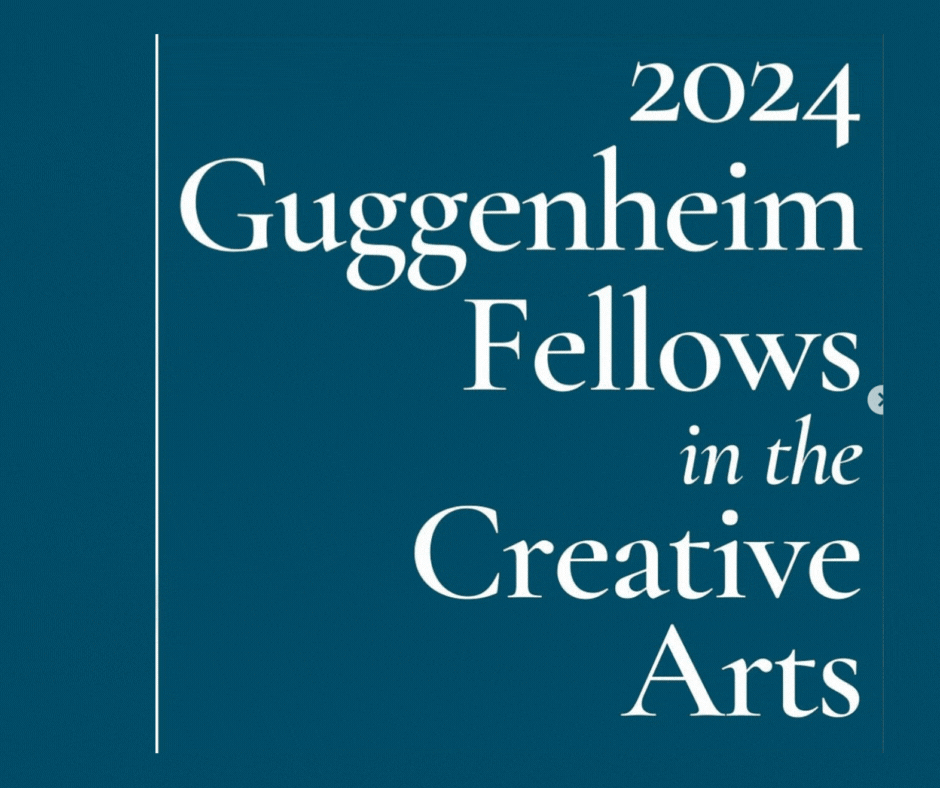
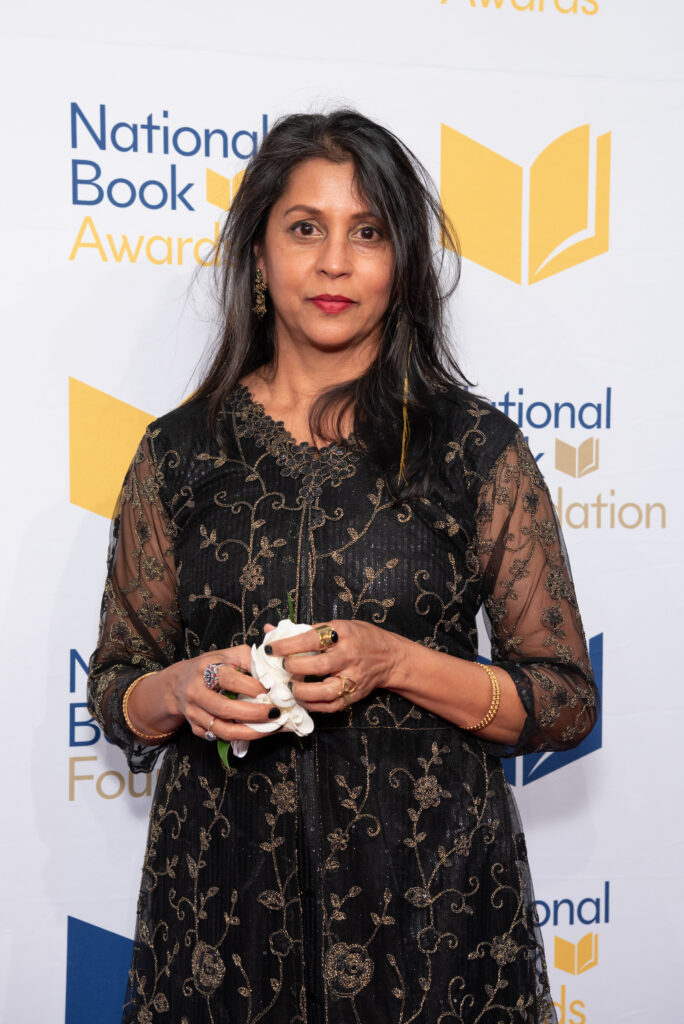

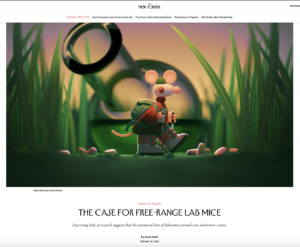
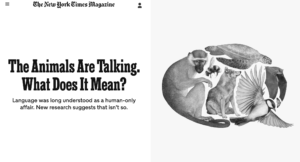
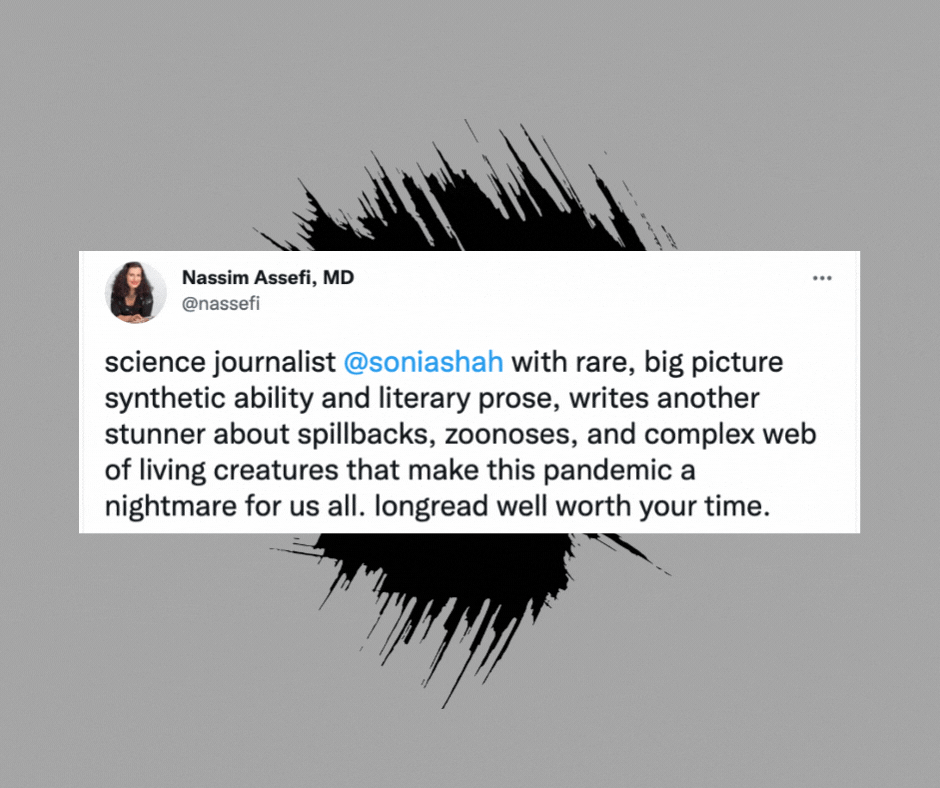
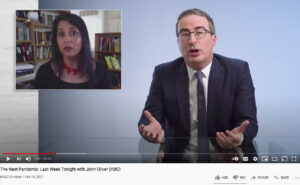
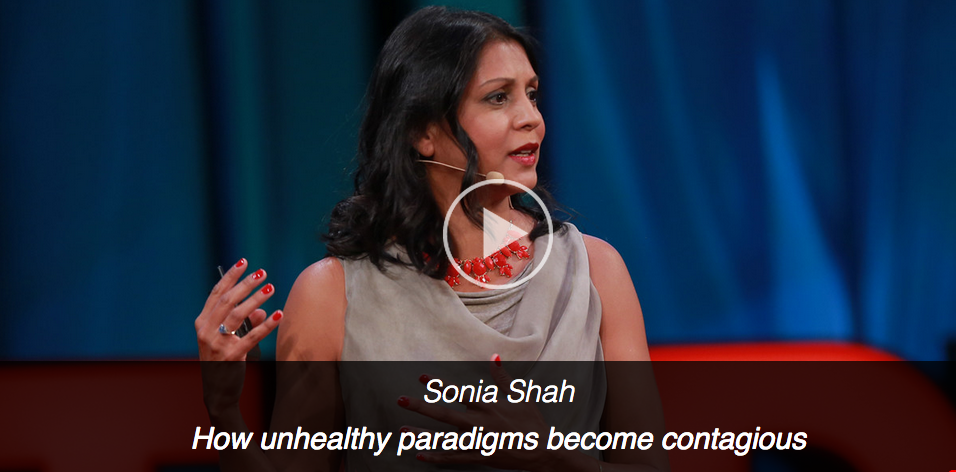
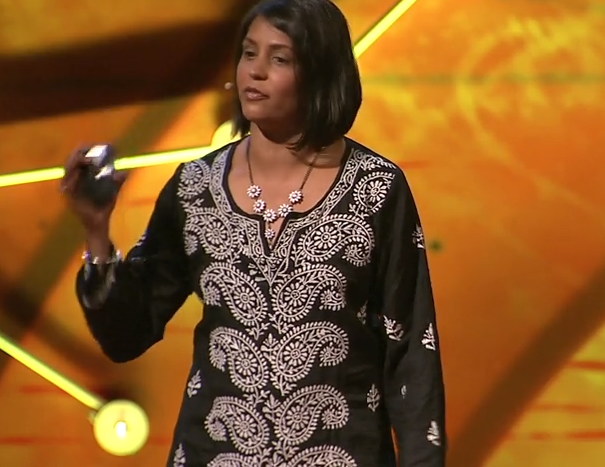




Leave a Reply